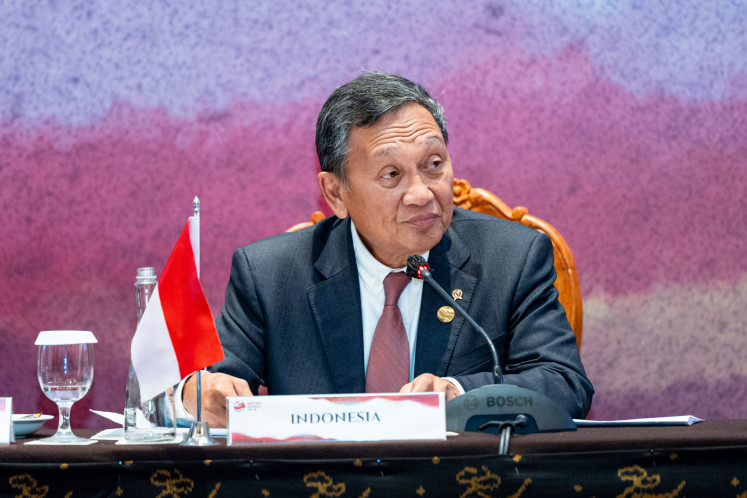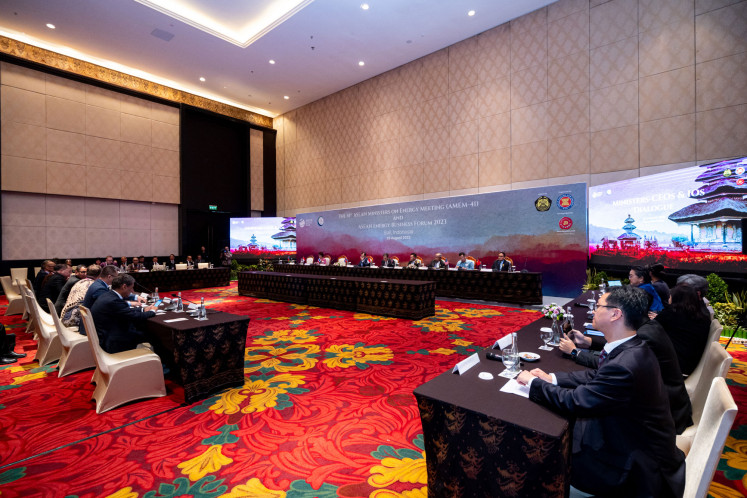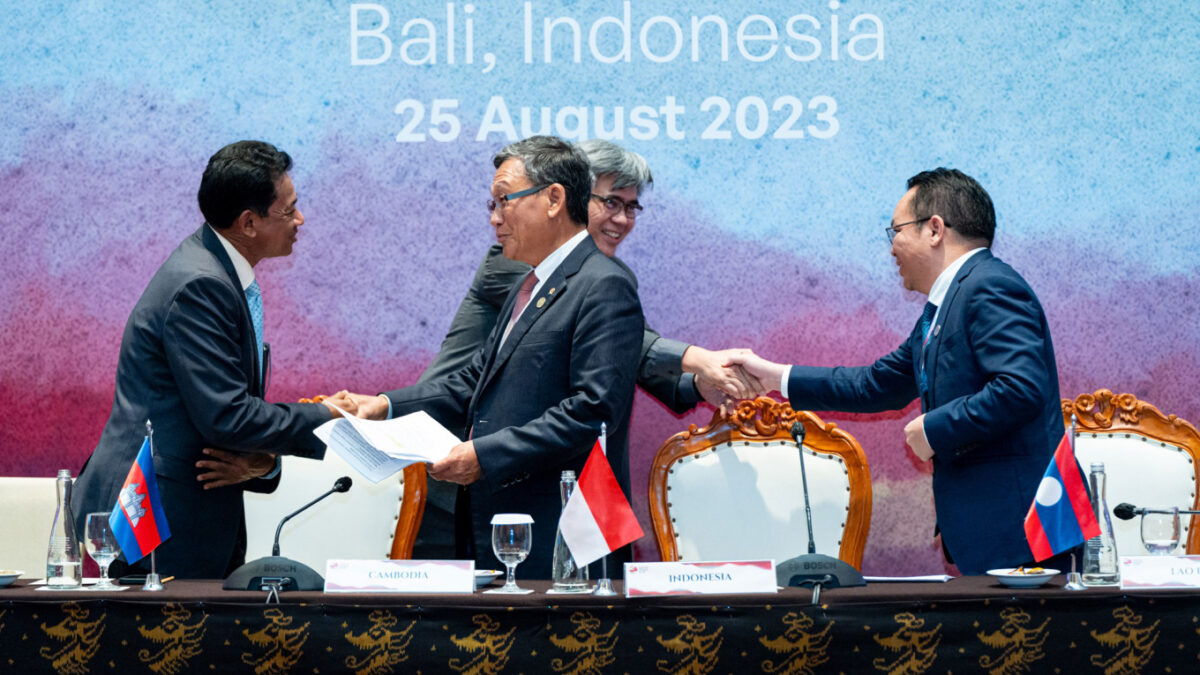JAKARTA, 4 September 2023 – The ASEAN Centre for Energy (ACE) has signed a series of significant Memoranda of Understanding (MoUs) with key regional and international partners, solidifying the center’s commitment to fostering energy cooperation, sustainability and innovation across the region.
The MoUs were signed during the 41st ASEAN Ministers on Energy Meeting (AMEM-41) in conjunction with the ASEAN Energy Business Forum (AEBF) 2023, held on Aug. 25, 2023, in Bali. The ceremony was witnessed by the ASEAN ministers and underscored the importance of collaboration in advancing the region’s energy landscape.
ACE’s collaborations extend to a diverse range of partners, each of which contributes unique expertise and resources to bolster the energy landscape of ASEAN. To continue the implementation of the ASEAN Plan of Action for Energy Cooperation (APAEC) Phase II: 2021-2025, a total of 12 MoUs have been established.
The ASEAN Interconnection Masterplan Study (AIMS) III identified 18 potential cross-border interconnections for energy transmission with a cumulative capacity of 33 gigawatts (GW) by 2040, including two proposed interconnections between Indonesia and Malaysia for feasibility-level analyses: between Sumatra, Indonesia and Peninsular Malaysia, and between Kalimantan and Sabah.
ACE, Indonesia’s state-owned electricity company PLN and Tenaga Nasional Berhad (TNB) are collaborating to develop a feasibility study for an interconnection line between Sumatra, Indonesia and Peninsular Malaysia. The study will focus on scaling up investments in the facility required, supporting the development and implementation of policies and determining the technical, financial and economic feasibility along with the preliminary environmental impact assessment.
The Sumatra, Indonesia – Peninsular Malaysia Interconnection will be the first subsea cross-border interconnection in the region.

In addition, ACE, PLN and Sabah Electricity Sdn Bhd (SESB) will collaborate to create a feasibility study with a similar scope, aiming to achieve sustainable energy security interconnectivity in the Brunei Darussalam, Indonesia, Malaysia and the Philippines (BIMP) area.
ACE is also entering a strategic partnership with the Southeast Asia Energy Transition Partnership (ETP), a multi-stakeholder platform managed by the United Nations Office for Project Services (UNOPS), and Clean, Affordable and Secure Energy for Southeast Asia (CASE), a project jointly implemented by a consortium of eight entities led by the Deutsche Gesellschaft für Internationale Zusammenarbeit (GIZ) GmbH to implement the ASEAN Power Grid Advancement Programme (APG-AP) in accelerating the renewable energy integration through the ASEAN Power Grid.
An MoU between ACE and ACCECC Affairs Managing Agency (AMA) aims to enhance clean energy collaboration between ASEAN and China. ACCECC will scale up the joint research, knowledge sharing and cooperative initiatives in the energy sector that was established in 2017 through cooperation between ACE and the China Renewable Energy Engineering Institute (CREEI). ACCECC will also host programs that showcase solid synergy in policies, technology advancement, financing and human resources capacity building.
ACE is closely collaborating with the Korean Development Bank (KDB) on “Supporting Innovative Mechanisms for Industrial Energy Efficiency Financing in Indonesia with Lessons for Replication in the other ASEAN Member States” and is continuing its partnership with the Energy Foundation China (EFC) to accelerate the energy transition and ensure energy security in the ASEAN region through joint research, policy development and technology adoption.
Continuing the collaboration for the region is an MoU with Japan International Cooperation Agency (JICA), where ACE and JICA will work together to expedite decarbonization and promote sustainable development within ASEAN.

Meanwhile, an MoU with the Asian Development Bank (ADB) will see the two collaborate on developing clean energy and energy efficiency projects, a regional power market and multilateral power trade arrangements and regional power interconnections within ASEAN.
To support ASEAN’s energy transition toward net-zero, ACE will further enhance its collaboration with the Japan External Trade Organization (JETRO), while also embarking on a collaborative project with the National Solar Exchange to develop a functional demonstration of a regional energy investment platform.
Lastly, ACE has signed MoUs with three universities; Universiti Tenaga Nasional (UNITEN) to foster academic research and industrial collaboration; Universitas Pendidikan Nasional (UNDIKNAS) to reinforce research and training efforts; and Waseda University to promote research, educational activities and knowledge exchanges.
These collaborations underscore ACE’s commitment to driving positive change in the energy sector across ASEAN.

